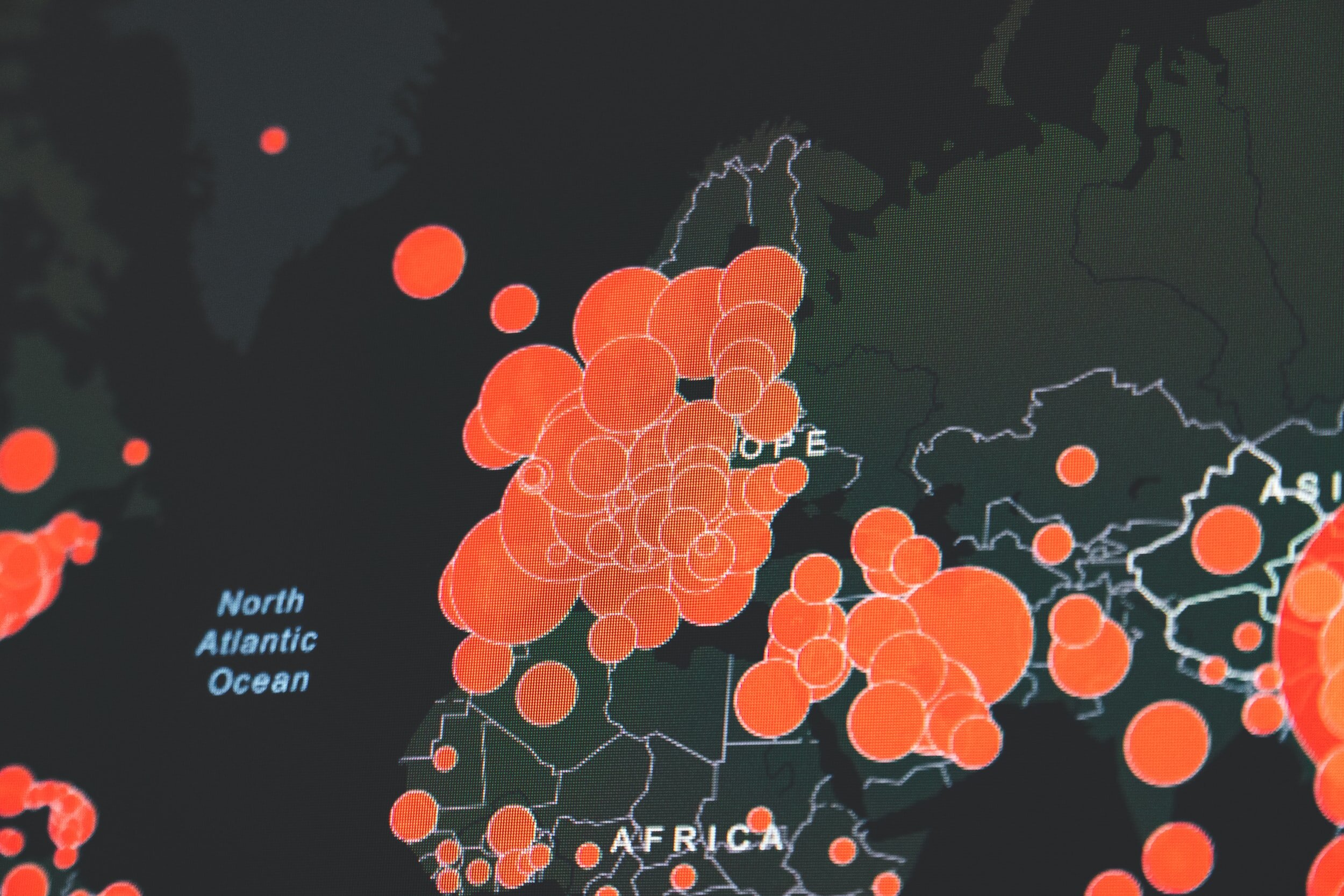WHY ‘DISEASE WHAC-A-MOLE’ DOESN’T WORK
You’ve probably heard about the UK government’s budget cuts to overseas aid. A recent report in the Guardian detailed some of the research projects affected, including, of all things, one tracking new coronavirus variants in India.
The cuts are not evenly spread, meaning some projects are much harder hit than others: in some cases by over 85%.
Some of those projects include polio eradication, (a disease that is having a resurgence, as I mentioned in my last blog), projects on sexual and reproductive health, and drug treatment and research programmes on Malaria, HIV and AIDS.
By cutting back funding and support in these areas, we are risking not only political capital, but more importantly, decades of progress and painstaking gains in the fight against killer diseases.
“The global community cannot afford to cut aid to established programmes that have contributed significantly to the major progress made against malaria and other diseases; we must continue to look outwards, rather than turning inwards at the expense of the world’s most vulnerable.”
Diseases have always been great opportunists. A modelling study published in the Lancet last year predicted significant negative impacts of the Covid pandemic on other diseases, including Malaria, HIV and TB, through a combination of interrupted treatment programmes, delayed diagnosis, and, in the case of malaria, disruption to insecticide-treated net campaigns. The scientists warned that such interruptions could lead to 5-year death tolls of the same magnitude as Covid in places with a high burden of these diseases.
But despite the warnings, funds and personnel have and are being diverted, and, as we are seeing all too painfully in India, health systems have been overwhelmed, as nations and institutions scramble their defences against the pandemic. What’s more, lockdowns have prevented people from attending regular health clinics or seeking new treatment, and childhood vaccination programmes have been curbed.
So how have the veteran killers responded to our preoccupation with the deadly new Covid pathogen?
Provisional data compiled by the World Health Organization (WHO) from 84 countries indicates that an estimated 1.4 million fewer people received care for tuberculosis (TB) in 2020 than in 2019 - a reduction of 21%. This will have significant consequences on mortality rates and transmission.
Reduction in sexually transmitted infections (STI) screening & education programmes during the pandemic is exacerbating the spread of disease as people aren’t diagnosed or self-medicate. WHO has warned that the overuse of certain antibiotics like azithromycin during the COVID-19 pandemic may also contribute to a rise in STI- resistance, including what’s called the ‘super gonorrhea’ strain, increasingly prevalent throughout the world.
And an HIV study reported that South African primary care clinics have been severely impacted by the COVID-19 lockdowns, with reductions in HIV testing and treatment initiation.
As for malaria, it is predicted that the number of young African children dying of this disease will double in the coming year because of interruptions to diagnosis, treatment and net campaigns. This may also impact efforts to control the spread of drug-resistant parasites and insecticide-resistant mosquitos.
The same study made a sobering comparison between the Covid pandemic and the Ebola crisis in West Africa, where similar treatment disruptions resulted in excess malaria deaths outnumbering deaths from the Ebola virus. Deaths from HIV infection and tuberculosis also soared.
“As we deal with the COVID-19 pandemic, it is crucial that other major killers such as malaria are not ignored. History tells us that if we do, the consequences will be dire, particularly in vulnerable populations.”
There is a salutary lesson here: we apply piecemeal initiatives at our peril. The whac-a-mole approach to fighting the pandemic, focusing our medical artillery on the immediate crisis to the detriment of other health priorities, is doomed to fail because diseases operate synergistically, amplifying adverse health impacts on vulnerable populations. And diseases, as we have witnessed all too acutely, are no respecters of borders.
What is needed is a more holistic approach, informed by the ‘syndemic’ nature of this pandemic.
Syndemic refers to a situation where two or more diseases interact in a way that causes damage greater than that caused by the diseases on their own. An unfortunate example of the whole being greater than the sum of its parts.
“The (syndemic) model discards conventional understandings of diseases as discrete entities distinct from each other and independent of the social contexts in which they are found.”
The article quoted advocates a ‘One-Health’ approach to fighting the pandemic which takes into account the interconnectedness of diseases as well as the social conditions of different communities.
This means treating the whole, not individual parts. It means not cutting funding for vital research and beleaguered health programmes in other countries. It means not taking our eye off persistent foes like TB, malaria and HIV, or that other pandemic quietly capitalising on the crisis: antimicrobial resistance.
Only by taking a holistic approach can we hope to stem the spread and resurgence of disease: new and old.
My debut novel is set in the aftermath of an antibiotic crisis, and is available as an audiobook, e-book or good old-fashioned paperback and you can find out more here.


